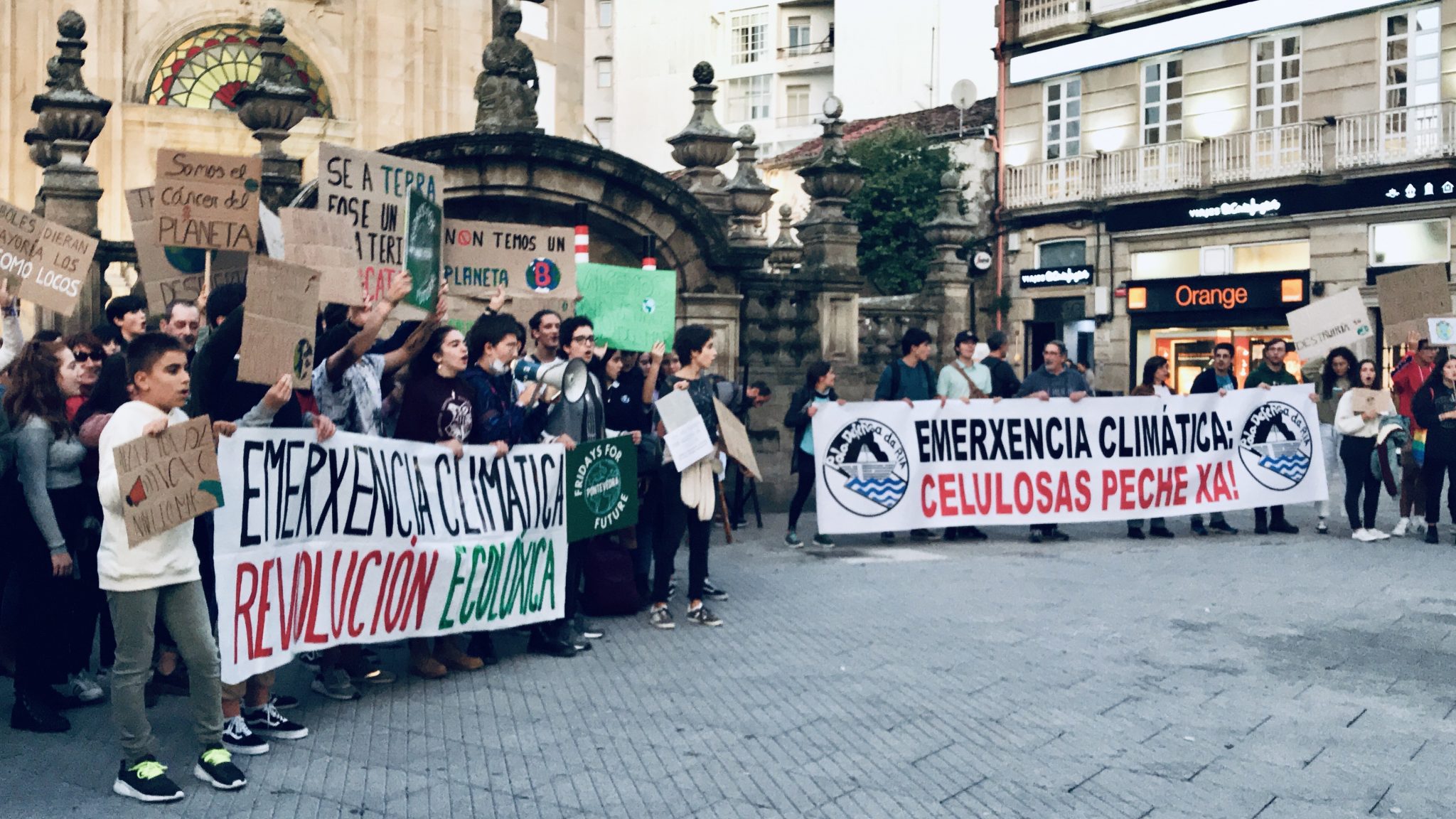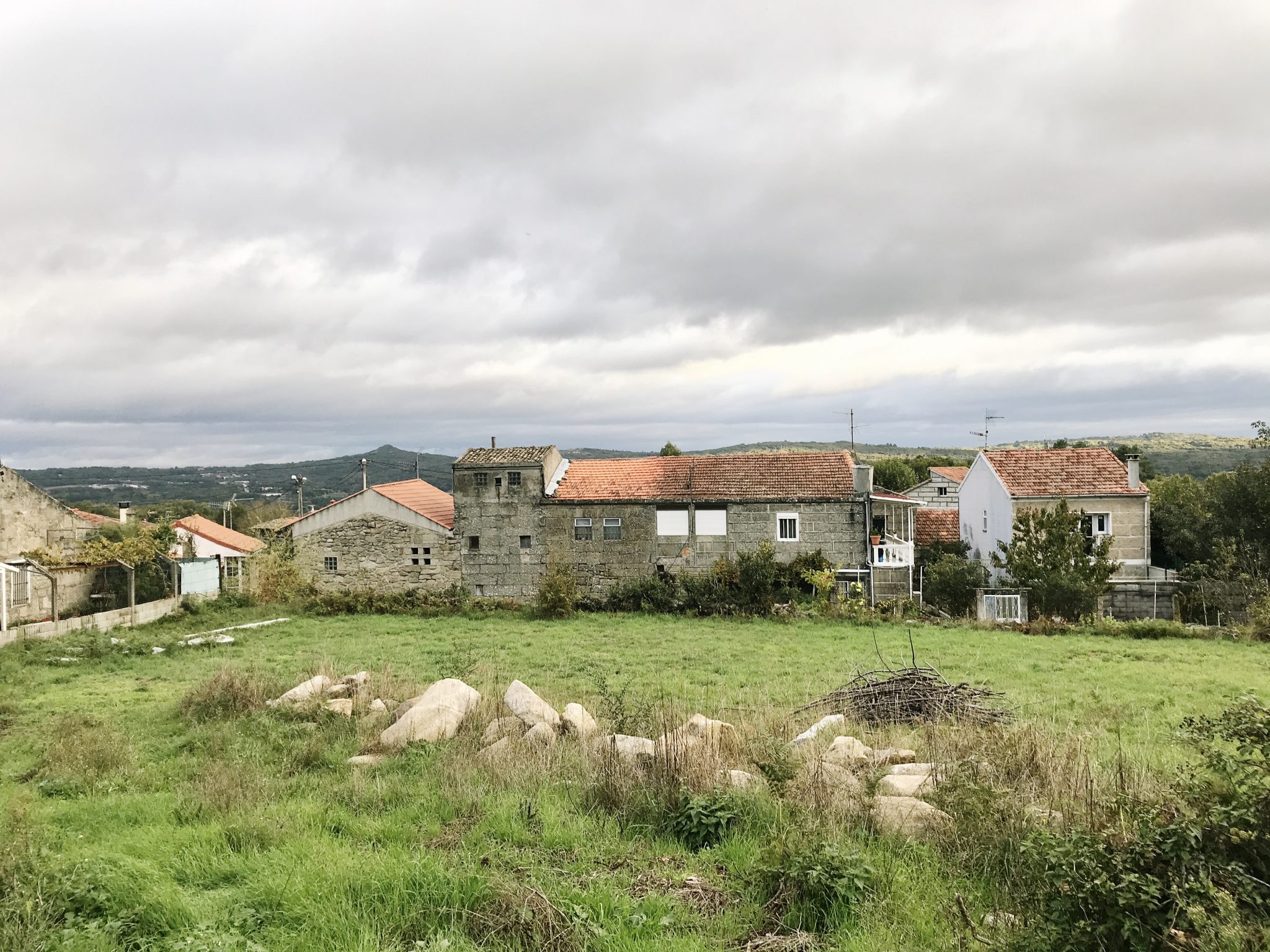
Journal
Afincados
Por fin.
A few days ago, we left the coast and moved into a small house in a village of around sixty inhabitants. Situated on a carretera secundaria, up a small monte, we’re a few kilometers outside a town of 6,000 people, from which is a 25-minute drive to Ourense.
We’ve met a few neighbors, who’ve already generously given us apples from a small orchard across the street and candied pecans. We have fresh bread delivered every morning and even though we are on a carretera segunda, there aren’t many passing cars throughout the day. We are almost definitely the youngest people in the village.
Yesterday, we took a walk further up the monte with Alqo. The feeling of having lush, beautiful forests to enjoy so close, without needing to drive, is unmatched.
I can get very used to this fresh morning air and quiet rainy evenings, dawn to dusk filled with birdsong and incredible views.
The Qur’an and Coherent Heterodoxy: A Book and System Beyond Religion
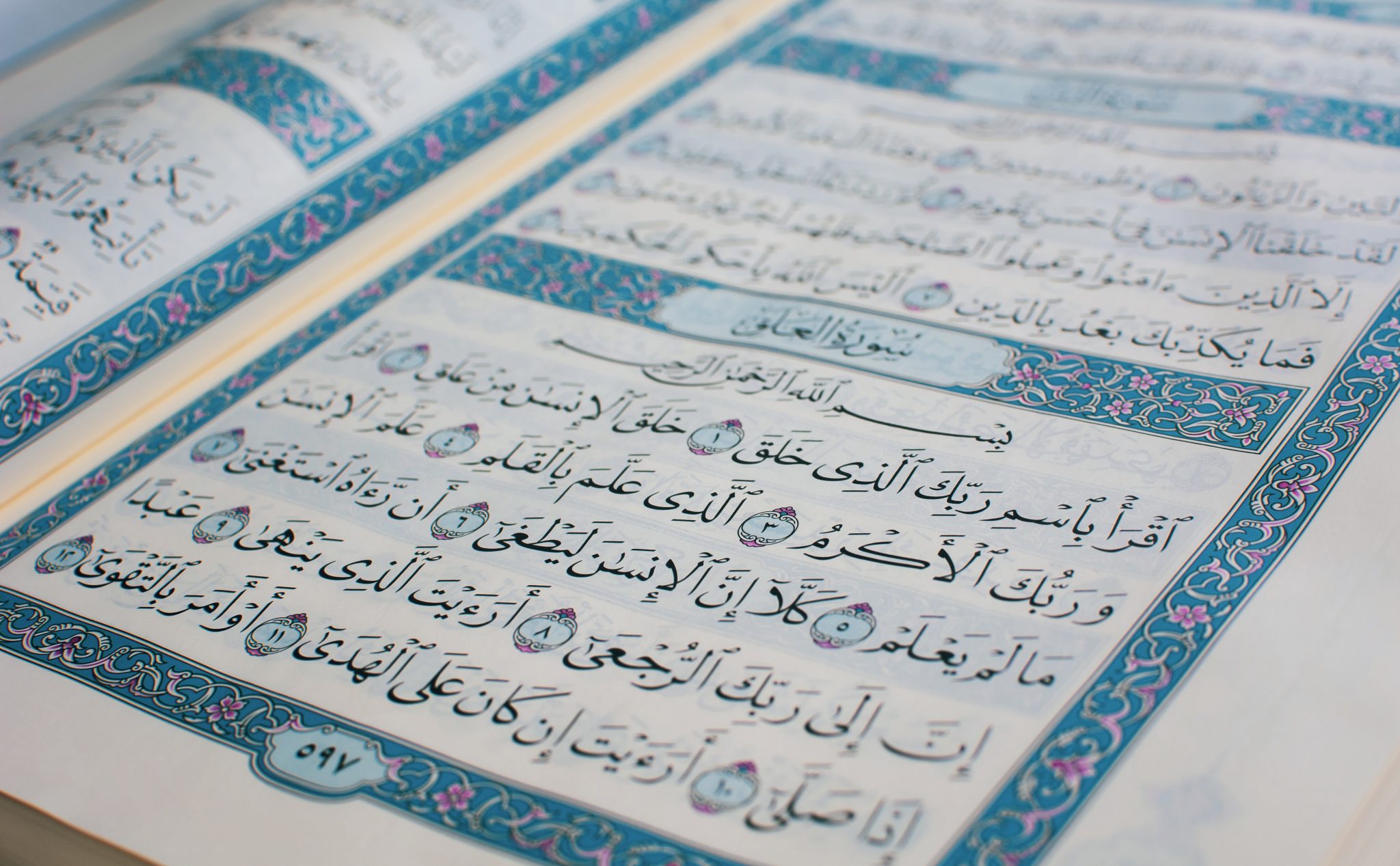
Note: I’m quoting extensively from a page devoted to correctly analyzing and rightly criticizing traditionalist translations of Qur’anic verse 4:34, the so-called “wife-beating verse”. Its author is Wakas Muhammad from the United Kingdom. Here, my interest is in both his personal story and his methodology for studying the Qur’an. Both he and I are not scholars, simply seekers.
When someone else has found the words for the thoughts and feelings I share, I let them do the talking. As time passes, I become even more convinced of the necessity of interpersonal exchanges from laypeople, away from centers of power and gatekeepers of knowledge.
Have you read the Qur’an? Have you tried? It can be confusing. Believe me, I know. Especially if you are like me and didn’t grow up with any sort of religious background. Moreso if you grew up in a milieu or you actively chose to be reject the idea of religion in the first place in your youth. The very idea of some god on high commanding you to surrender could seem odious to some, especially westerners. Many seem to think an ineffable, divine reality goes against logic and science. I remember going to hardcore punk shows in Riverside county or while browsing the Bridge 9 messageboards in high school, and seeing, alongside the straight edge community, a significant atheist presence, some with tattoos such as: “I’ll die before I kneel.” Maybe they were anti-monarchists, but I doubt it.
The Qur’an is unlike the Bible or any other religious text. The parables of prophets and admonitions of the life to come, of the absolute unity of God, and of the importance of good works are scattered throughout its 114 chapters, arranged in descending order according to length.
Things can become simultaneously more inspiring and confusing when you’re wading into the waters of Islam; researching what you’ve read, watching lectures on YouTube, talking to Muslims if you have the opportunity, reading histories and theologies.
By then you’ll surely have discovered there is a vast trove of narrations recounting the supposed actions and sayings of the prophet Muhammad, compiled a few centuries after his death. This is the hadith literature. By now, while reflecting on your existence and seeing the signs in your life and in the world, you might be convinced of the existence of God, and possibly the veracity of the Prophet Muhammad.
But there might also be doubt. Your family or friends might not understand the changes that seem so clear and logical to you. You might agree with 90% of Islamic teachings according to the scholars.
I remember one Ramadan night in Nouakchott. It was after iftar and I was enjoying the warm evening desert air with two Muslim neighbors from France. The topic turned from the Islamist takeover of northern Mali to capital punishment. One of them mentioned how the people of Azawad, sick of the corruption and indifference of Bamako and lawlessness that was born because of it, some citizens welcome the takeover and the imposition of rajm, or stoning. Regardless of the Qur’anic silence on the matter (to be very clear, stoning is not mentioned in the Qur’an) and my disgust, the other neighbor, a convert himself, said, “Well, like it or not, it is part of Islam.”
We have not neglected in the Register a thing.
— Qur’an [6:38]
Despite clear admonition to not innovate upon the system that God has laid out, we have innovated.
It is beyond the scope of just one post to articulate my own journey and current views vis-a-vis hadith of almost a decade. But I guess this is what a blog is for; a continuous dialogue, in flux. I briefly touched on some of those thoughts in an earlier post.
All this to say; each of us has a journey, and I have found hope and solace in others’. The following is for two types of readers; Those interested in hearing of someone else’s experience following the straight path [6:151-153], and those looking for some guidance on what to make of the Qur’an using only itself as a reliable source.
Wakas Muhammad’s Journey
I’ve quoted a few illuminating passages from Wakas Muhammad’s about page regarding his relationship to Islam and the Qur’an. He was born into a traditionally Sunni Muslim household, while I came into the fold later in life via the shahada in Sunni Mauritania. We’ve never met. But we share an affinity for nature, are skeptical of authorities, and an inquisitive mind in common. I highly recommend reading his full story.
On accepting the core and questioning the presumed authorities:
“So whilst I questioned Islam, I never really questioned its core belief.”
“…there was simply no way of knowing if my Sunni Islam was the right version. I often thought if I was brought up as a Shia Muslim for example I’m sure I’d think Shia was the right version and Sunni was wrong.”
“I had no idea then, that this simple and subtle shift in direction was to lead me somewhere I never imagined: to a book and system that was beyond Sunni or Shia, in fact, to a book and system that was beyond religion.“
On often overlooked hadith criticism of early Islam:
“Namely, the traditional Hadith are a mix of truth and falsehood, littered with traditions/culture/politics/conflict/views of the time and nothing to do with the universal message of The Quran. Hearsay pawning itself of as the direct words of prophet Muhammad when in fact it was compiled generations after (like The Bible!) through arbitrary means and ultimately unverifiable chains of narration. An important point I realised was the authenticity of Traditional Hadith was in question right from the start, bans were in place, hadith scripts were systematically collected and burned by Caliphs Abu Bakr and Umar, people jailed for spreading them, opposition to them having an obligatory status was significant, no early school of thought used them as an obligatory source of law, conflicts arose etc. Eventually however, this new Hadith-centric position triumphed. Unfortunately, this is the history Muslims are not taught, as the saying goes: “it is the victor’s history that goes to school”. Just like in the past, history had repeated itself:
- Moses delivered God’s message, afterwards, most of his followers became misguided.
- Jesus delivered God’s message, afterwards, most of his followers became misguided.
- Muhammad delivered God’s message, afterwards, most of his followers became ?
Muslims seem to think we are immune to this pattern in history. Like me they have no idea it has happened to us as well [6:112-116], [25:30].”
On the long process of smashing idols and rebuilding faith:
“Even though I had effectively accepted The Quran as the only source for Islam, I hadn’t realised to what extent tradition/culture had been incorporated into everyday practice/beliefs. This point in the journey is not for the faint-hearted! Many Traditional Muslims will accept that not all traditional Hadith can be trusted (hence weak/strong classification, etc.) and most will state The Qur’an is the primary source, but like many I had no idea that the Islam taught by the Qur’an was almost unrecognizable to the Islam practiced today.”
“This is where many end the journey. This part requires someone to actively study/seek/research/question their own beliefs as well as their family/friends, etc. It requires the breaking down of myths, embracing uncertainty, periods of confusion mixed with joy and clarity, rebuilding of ideas… who would want to put themselves through that? Not many. The more I researched, the more disillusioned, confused, lost I became. It is important to point out it was not because it didn’t make sense, it was because it was shaking my beliefs down to the ground. It was just so different and unexpected to what I had been taught. Slowly but surely I began to connect the dots and see the big picture. I now realize it was necessary to break down my beliefs and rebuild on a solid foundation [9:109]. Like most, I started with a core starting point (belief in God) but had built upon it a mixture of Islam + tradition + culture + myths + hearsay + bias. This was not a solid structure, so I began to dismantle it using the ultimate falsehood smasher; the Qur’an. Akin to how a sculptor does not keep adding clay to his subject, actually, he strips away the inessentials until its true form is revealed, and the truth is beautiful.”
On monotheism and faith as an ongoing exercise:
“To end, I consider myself a monotheist who inclines towards the Qur’an because it resonates with who I am and how I see the world, and I try to live by its principles. My working hypothesis is that it is the Word of God and I am in an ongoing verification process, and I am still learning. I am not religious, nor do I wish to be, for the Qur’an is a book beyond religion. I do not know if I chose this path, or the path chose me, but I will continue to walk it, because I choose to.
As the saying goes: “there is a difference between knowing the path and walking the path”. I believe most Traditional Muslims know the path but are unwilling to walk it, or if they do walk it, they prefer to be led down the path by their religious leaders. When one has the guiding light of the Quran, there is no need for another shepherd.”
Toward A Rational, Nonsectarian Qur’anic Study Framework
I became aware of this list years ago and saved a copy in my notes on my phone. I didn’t know who had written it then. It might have been on tumblr, or another social network where works are passed around often without any original accreditation accompanying them. Only when I wanted to share this did I find the author and his page. The links direct to quran.com, an easy-to-use online Qur’an with multiple translations.
- Look to its internal examples, stories within it give us lessons, it is a clarification for all things [7:176], [12:3], [12:111], [17:89], [18:54]
- Any interpretation must always be understood in a way that is focused on benefiting mankind and our development [13:17]
- Any understanding should reflect its attributes, such as: wisdom, mercy, healing, noble, glad tidings, blessing, clear etc. [2:97], [10:57], [15:1], [17:82], [36:2], [45:20], [56:77], [85:21]
- Seek God’s spiritual aid, away from the forces of satan/opposition (e.g. emotional instability, personal desire, self-delusion, arrogance, prejudice, deviation) [16:98]
- Seek knowledge, verify, use your God-given senses [17:36], [39:9]
- To not believe in the Hereafter can act as a barrier to its understanding [17:45-46]
- Guides to what is straight/upright/establishing [17:9]
- It increases guidance for the guided, i.e. those who continuously turn towards it, seek it, and follow it [19:76]
- It has not been sent to make us suffer unnecessarily, thus any interpretation should bear this in mind [20:2]
- Its information and teachings should map to our reality (within our psyche, experience and to the furthest horizons). All signs, internal and external can point to the truth of it and act as a verification mechanism [21:10], [30:30], [41:53], [51:20-21]
- Open your heart and mind [7:179], [22:46]
- Those closest are those who believe and do good works, implying God-consciousness/righteousness and understanding could go hand-in-hand [22:54], [34:37]
- It is the criterion with which to determine/judge [2:185], [6:114-115], [25:1]
- It contains the best response/explanation [17:41], [25:33]
- Knowledge of archaeology, biology, physics, history, sciences, philosophy, etc. will all help to better understand it [3:137], [3:190-191], [29:20], [45:3-4]
- Advised not to blindly follow the teachings of our ancestors [2:170], [7:28], [6:112], [7:70], [26:74], [43:23]
- A guide for the God-conscious/forethoughtful, there is no doubt in it, thus understandings which raise doubt about it must be carefully reviewed [2:2], [3:138], [10:37]
- Shows the importance of reflection, to deeply consider/think [2:219], [3:191], [6:50], [10:24], [16:44], [30:21], [34:46]
- Listen and consider other views and follow what is best of them [39:18], [42:38]
- Variance rejected, no crookedness, one consistent source is the preference [39:27-29]
- Remain true to its principles of justice, equivalence, fairness, compassion, opting for the good/better response etc. [3:195], [4:135], [5:8], [8:61], [28:54], [42:40]
- Ground oneself in solid principles and maintain sincerity [3:79], [75:18]
- Apply what you learn/know [3:79], [75:18]
- Language is not a barrier, belief/acceptance of it will help understanding [41:44]
- Tadabbur means to ponder over something giving careful consideration to its consequences [23:68], [47:24]
- Disapproves of conjecture/guesswork and promotes examination of evidence [2:111], [6:116], [21:24], [45:24], [49:6], [53:28]
- Anything from God will not have contradiction/inconsistency/variance. This also applies to our understanding as well. If we formulate a correct interpretation of the Qur’an, we will find that everything falls into place (This is one of the most crucial criteria) [4:82]
- Stick with a solid/proven source, not a baseless narration/hadith. The Qur’an is the best, most truthful and only obligatory hadith [4:87], [31:6], [39:23], [77:50]
- Purity of mind/heart will grasp it. Work on this aspect of oneself as you seek guidance [56:79]
- Do not rush our learning, read what is easy of it, gradually build knowledge and acceptance to strengthen one’s heart, and ask God to increase our knowledge [5:101], [20:114], [25:32], [73:20], [75:17]
- Try to utilize and appreciate its complete system of concepts [6:114], [12:111], [16:89], [17:89], [18:54], [39:27]
- Majority opinion means nothing [6:116], [12:106]
- Be wary of following desires as opposed to following God’s revelation [6:56], [13:37], [30:29], [42:14-15]
- Promotes logical thinking [2:258], [2:260], [6:75-79], [12:26-27], [21:22], [21:57-67], [22:5-6], [23:91], [36:78-79]
- In order to receive a weighty or profound word or saying, we need to arrange the likenesses in the Qur’an, e.g. cross-reference concepts/words/topics [73:4-5]
- Give it full attention, focus [7:204]
- Strong affinity towards use of reason [8:22]
With the Qur’an as a measuring stick, one finds a universal, timeless reminder, inclining toward peace, security, for all, regardless of faith-based identity. When hadith are introduced as a supplement, the picture becomes murkier, more 7th century, and more dislocated, at least for me.
Far from the book of an exclusivist religious group preoccupied by rituals and dogma (as some portray it), the Qur’an is meant for all people, for all time. It would serve us Muslims well to examine deeper into our history and traditions to become better stewards of the Message. It is 2019 and the world will not become less complicated. But we can, using the same intersectional critiques we use for other religious communities, un-complicate the Qur’an and open the door to other seekers, especially those not born into the faith.
Many thanks to Wakas Muhammad for his story and his Qur’anic study methodology. Thanks for reading this far.
Further Reading:
- G.A. Parwez’s Islam: A Challenge to Religion (PDF)
- Abdul Elah Nazer’s Sense and Sensibility in Islam: Linguistics, Context and Rationality
- Abdur Rab’s Rediscovering Genuine Islam: The Case for a Quran-Only Understanding
The Republic We Want: Spanish Republicanism and the Crown
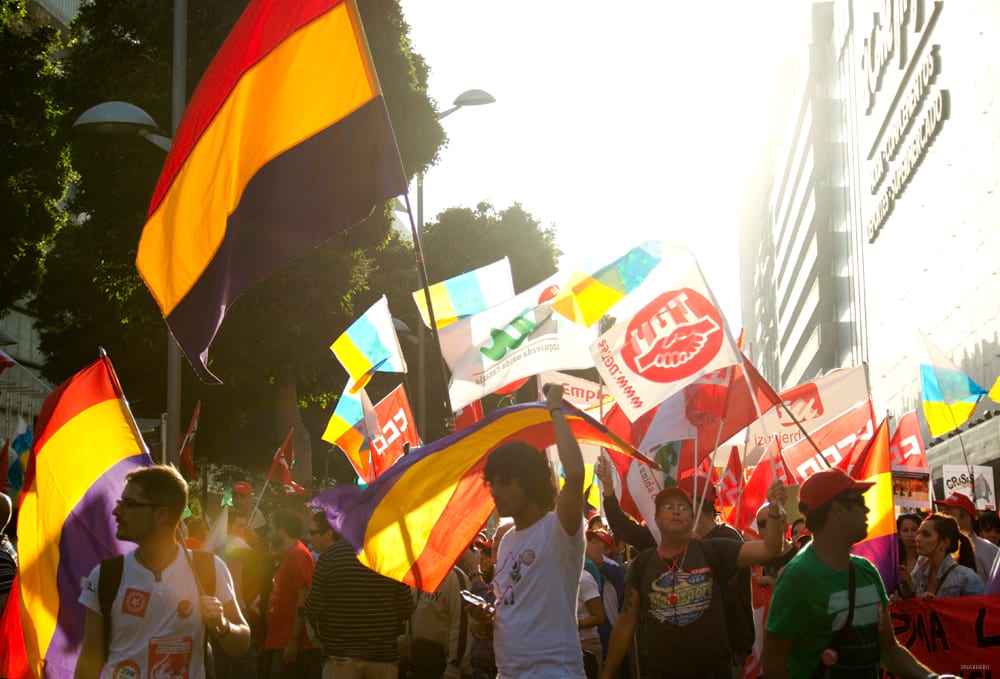
Las Palmas de Gran Canaria (Source: WikiCommons)
“We live in capitalism. Its power seems inescapable. So did the divine right of kings.” — Ursula K. Le Guin
King Felipe VI of Spain is here in Galicia. I normally don’t keep up with his movements, I only saw he was in the area when Xuventude Comunista, the Galician youth wing of the Communist Party of Spain tweeted some photos of their protest against him speaking at the University of A Coruña. Patricia’s grandmother also told me that he will stop in O Grove for the Atlantic Forum and to make an appearance at the Festa do Marisco. I’ve only read about it around the edges, but it sounds like a Davos forum for Spanish business and political élites.
To have a king in the 21st century. I assume some hardly think about it. But others, regionalists, younger generations, leftists, imbue the situation with deserved thought, criticism, and nuance. These people are repúblicanos, and advocate for a Third Spanish Republic. Not a party (like in the United States), much less a coherent voting block, Spanish republicans see an unfinished project in la transición, the transition from a fascist one-party state to a constitutional monarchy, and must deal with the consequences of political instability in the historically two-party system and growing fascism on the right with Vox.
While there still exists an aristocracy in America, like most countries with similar situations of income inequality, our history of tolerating monarchism ended with the loyalist refugees fleeing to Nova Scotia and New Brunswick after the Revolutionary War.
Spain’s trajectory with monarchism is different, of course. Today, the Crown enjoys support from around half the country, depending on poll numbers. Many older Spaniards I’ve talked with tell me Juan Carlos I did what he could with what he had at the time.
In 2007, only 22% favored a republic and in 2008 just 16% (7% claimed they were Juancarlistas, supporters of the king without a preference on the fate of the monarchy after him) But since the 2008 financial crisis, the string of royal scandals (including the Felipe VI’s brother-in-law, African hunting photos, infidelity, etc.), repúblicanismo is rising in Spain. And many are dreaming of a Third Spanish Republic.
El Confidencial had a recent poll in June of this year regarding preferences for a republic or monarchy. 46.1% of Spaniards now prefer a republic (with 50.8% for a continued monarchy, and 3.1% undecided).
I chose some of El Confidencial’s datapoints, both strongest preference per system including one in the middle, and added them here:
| Republic | Monarchy | |
|---|---|---|
| Age | ||
| 18-24 | 70.4% | 26.1% |
| 25-34 | 54.8% | 44.6% |
| 34-44 | 52.3% | 44.5% |
| 55-64 | 35.7% | 61.4% |
| Voted Party (April) | ||
| Partido Popular | 7.8% | 90.7% |
| PSOE | 51.6% | 44.5% |
| Unidas Podemos | 86.0% | 9.3% |
| Community | ||
| Andalusia | 23.5% | 75.1% |
| Galicia | 51.6% | 45.6% |
| Catalonia | 74.0% | 21.6% |
A majority of those polled who were born after 1975, the year Franco finally died (I’m not sorry, good riddance) prefer a republic, but stronger amongst the youth. It’s not surprising when broken down by party. The troika of right-wing parties, Partido Popular, Ciudadanos, and Vox all favor a monarchy by at least 82%. What’s interesting to me is the historical nationalities of Galicians, Catalans, and Basques being more inclined for a republican system, arguably giving more decentralized power to the autonomous communities, while the rest of Spain, specifically Andalusians interested in retaining the monarchy.
My question really is this; will we see a Third Spanish Republic in the next twenty or thirty years? And when it happens, can it endure? We can dream.
A Future in the Province of Ourense
We returned from a short trip a few days ago with Alqo and the van, through the center of Galicia. We were there to look at towns, try to picture ourselves there, and talk to people and inmobiliarias to see if there were any decent opportunities to rent a house.
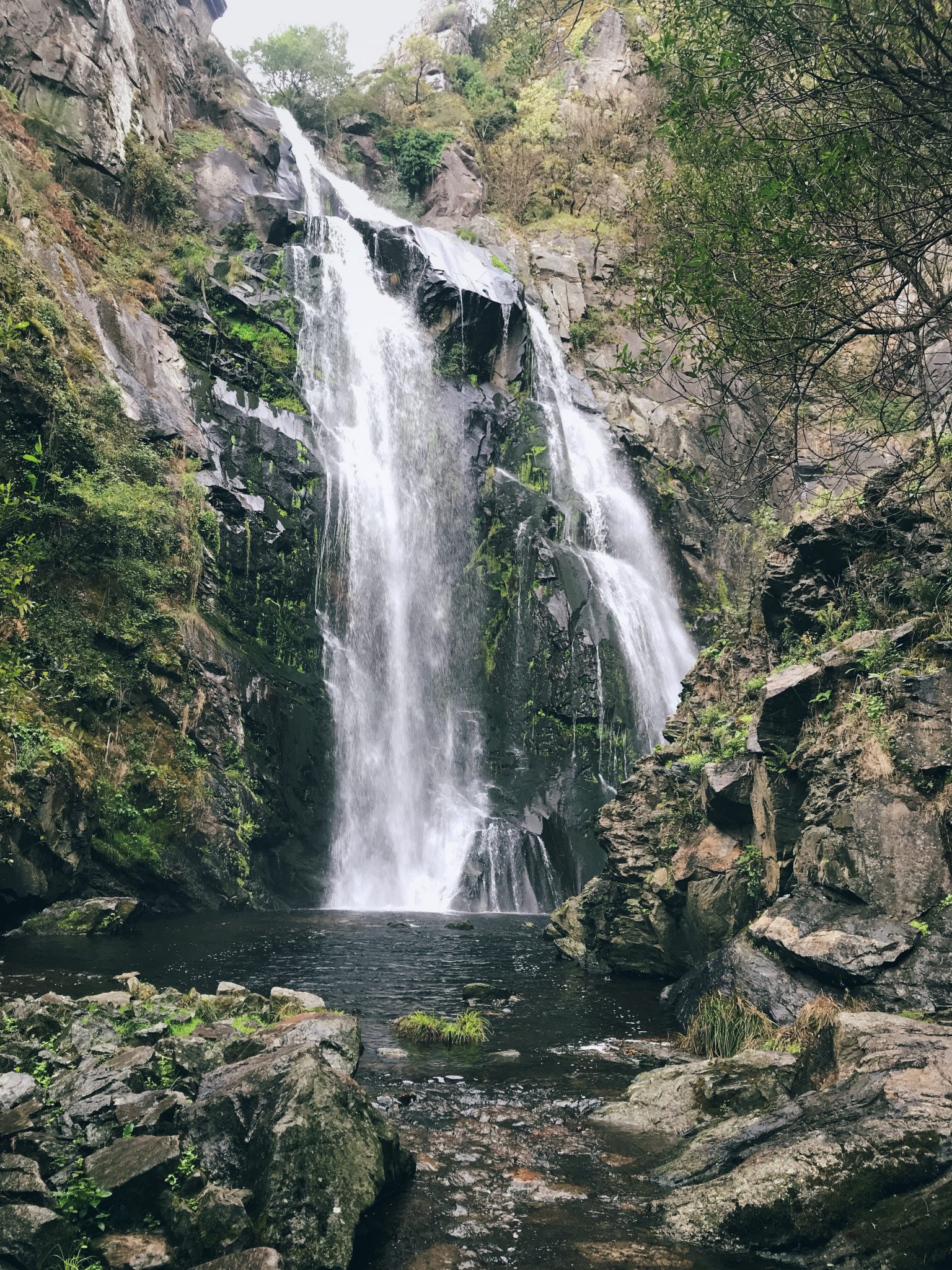
Those who have visited Spain can tell you about the overwhelming number of se vende signs, especially outside of Barcelona and Madrid (but we were in search of something que se alquila).
A byproduct of rural depopulation, some pueblos now are only populated by a handful of retirees. Those concerned with cultural heritage are worried that as locals age, historic buildings, archaeological sites, and churches will fall into disrepair with no one to preserve them. Schools in the mountains on the border of Portugal are being converted into centros de tercer edad. The jobs and cultural life that young people need and desire is not there. And so, they leave.
Nowhere was this more apparent to me than the province of Ourense. The only Galician province without a coastline, Ourense has the lowest birth rate in Spain. But Ourense also has its own Grand Canyon with the Cañón do Sil, beautiful meandering rivers like the Miño and Arnoia, and a pleasant and walkable eponymous capital with world-famous thermal baths.
If you read my other post, we were initially looking for things around A Estrada and Lalín, sizeable towns in the center, close to all the provincial capitals. But when we arrived in Chantada for for a roadside homemade lunch, we had to make a decision; turn north to Lugo, or south to Ourense. Already a bit chilly in late September and already expected in Senderiz to meet up with Edo from Sende, we both agreed; south.
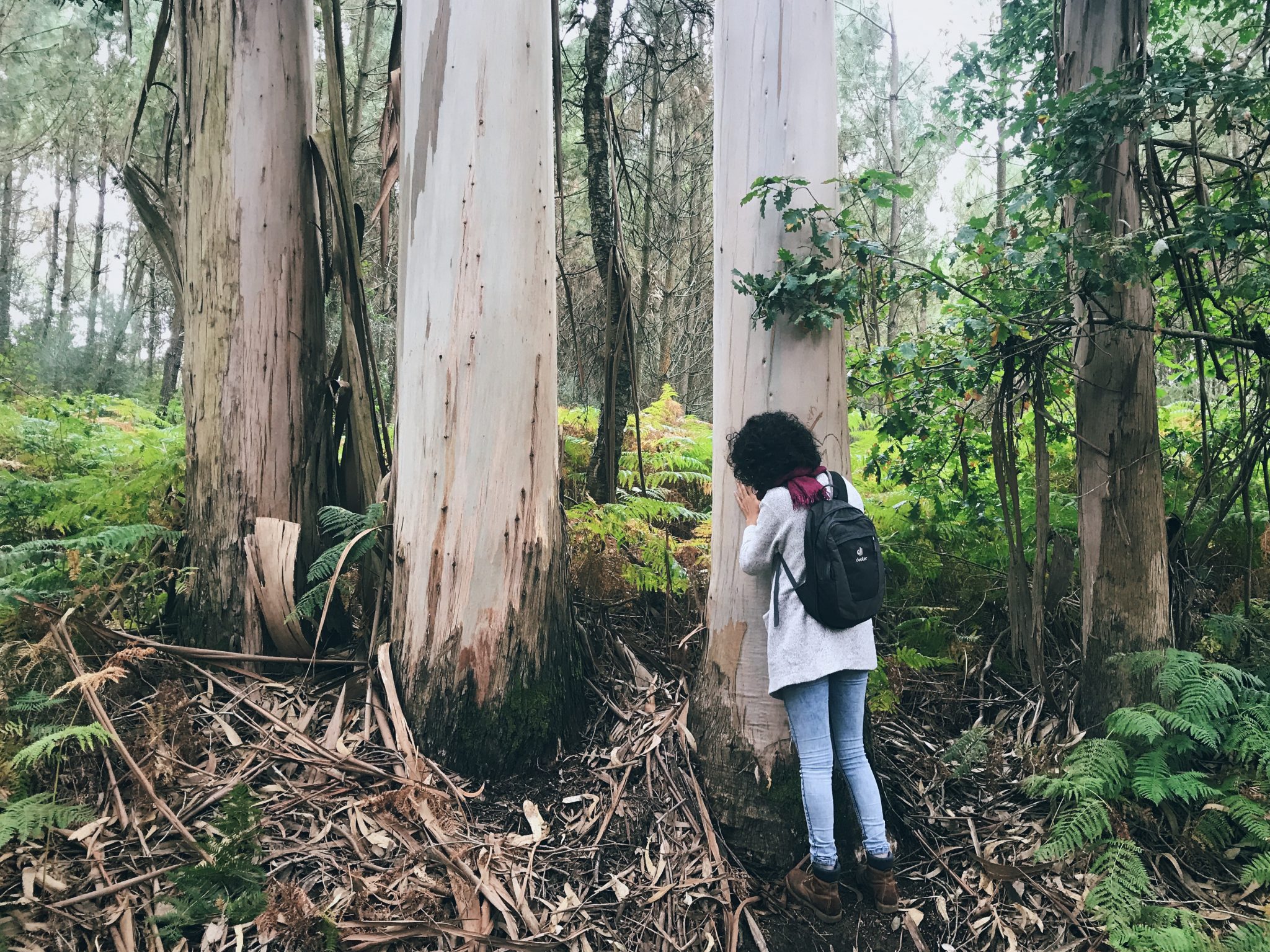
And we’re extremely pleased with ourselves that we did. Because what we found there and what we learned about ourselves, our preferences on environment and community, and the future we want exists in Ourense province.
Not to degrade the towns we had already passed through, but there wasn’t anything calling us to them. They were simply mid-size towns. But that changed when we saw the two medieval Ourensan towns of Ribadavia and Allariz.
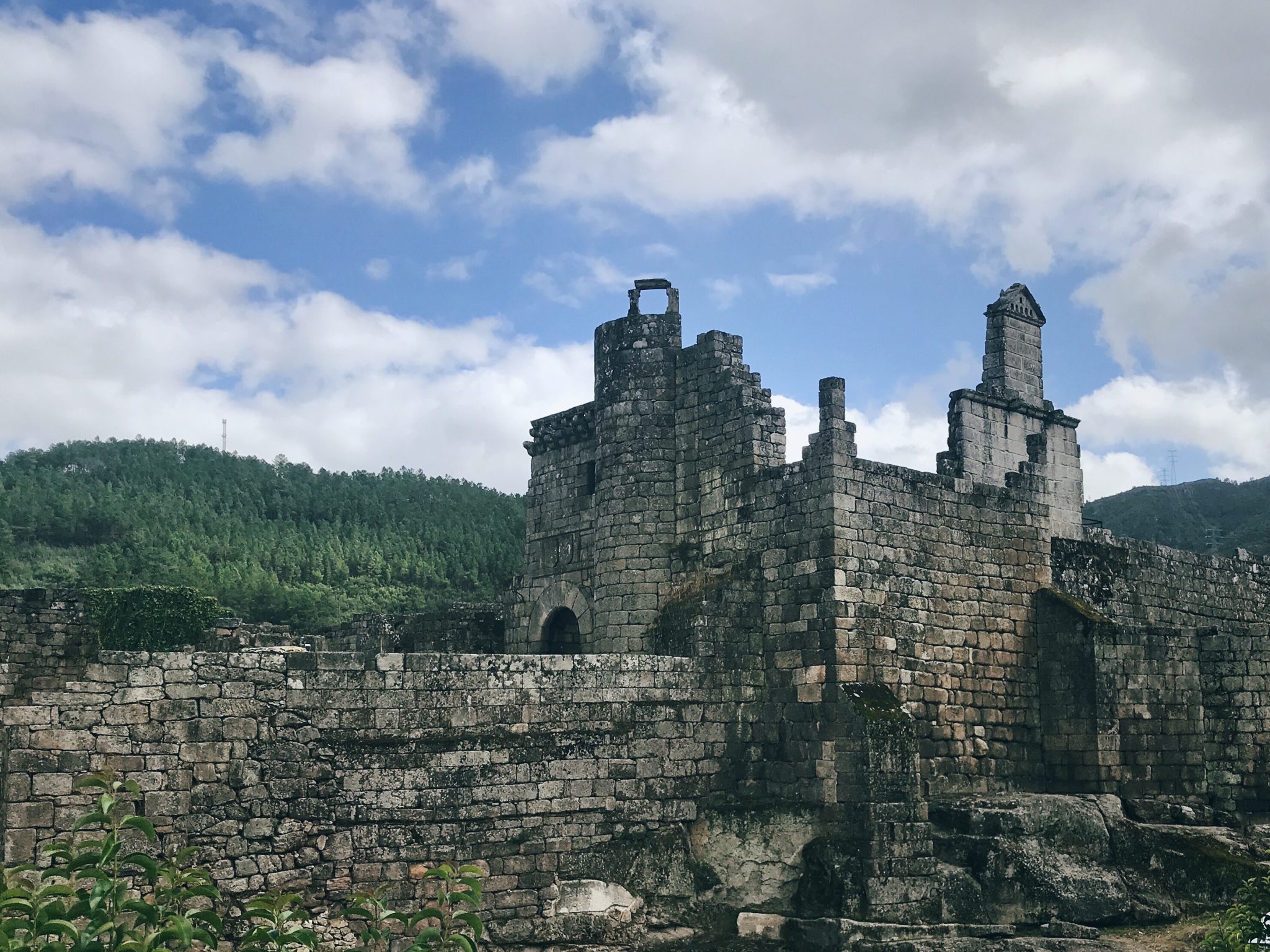
Alongside the northern bank of the Miño sits Ribadavia. The center of the Ourensan winemaking industry, the town also had a significant Jewish community, almost half the town by the 14th century, until the Inquisition came.
Outside of a day in Lugo and a few evenings in Pontevedra, I hadn’t seen a casco antiguo in Galicia and what a difference it makes upon seeing a town for the first time. Once we arrived, we walked by the old Castelo de Ribadavia and through the barrio xudeo, ordered vegetarian dürüm from a Turkish restaurant, and sat by the river while Alqo tried to eat bees, which seems to be his new favorite hobby.
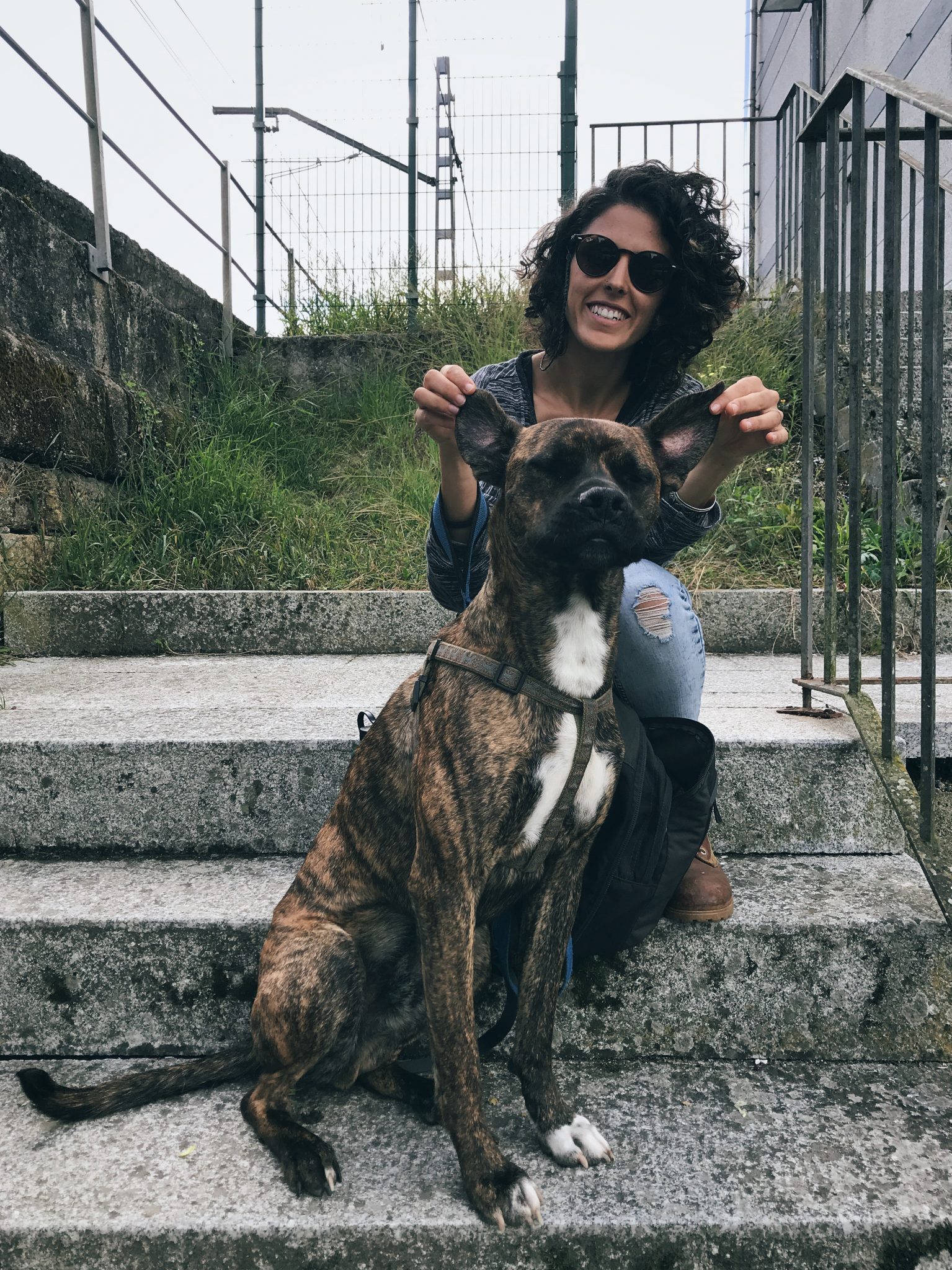
After a few hours or wandering around, through the town and near the river, we found an inmobiliaria who had exactly one rental listing; a small house in a parroquia of Ribadavia about a kilometer away. Satisfied we had at least found something, we were given a tour by the agent. Though it was in a wonderful location, with easy access to the town using a walking and bike path by the riverside, there wasn’t much land to start a garden nor a chimney or wood-burning oven.
We then turned our attention to a town not at all on our radar; Allariz. My mother-in-law had mentioned Allariz in passing years ago, remarking on its beauty and how much there was to do in the summer. Only 40 minutes from Ribadavia to Allariz via Ourense, we stopped in the capital to buy some groceries and arrived in the early afternoon.
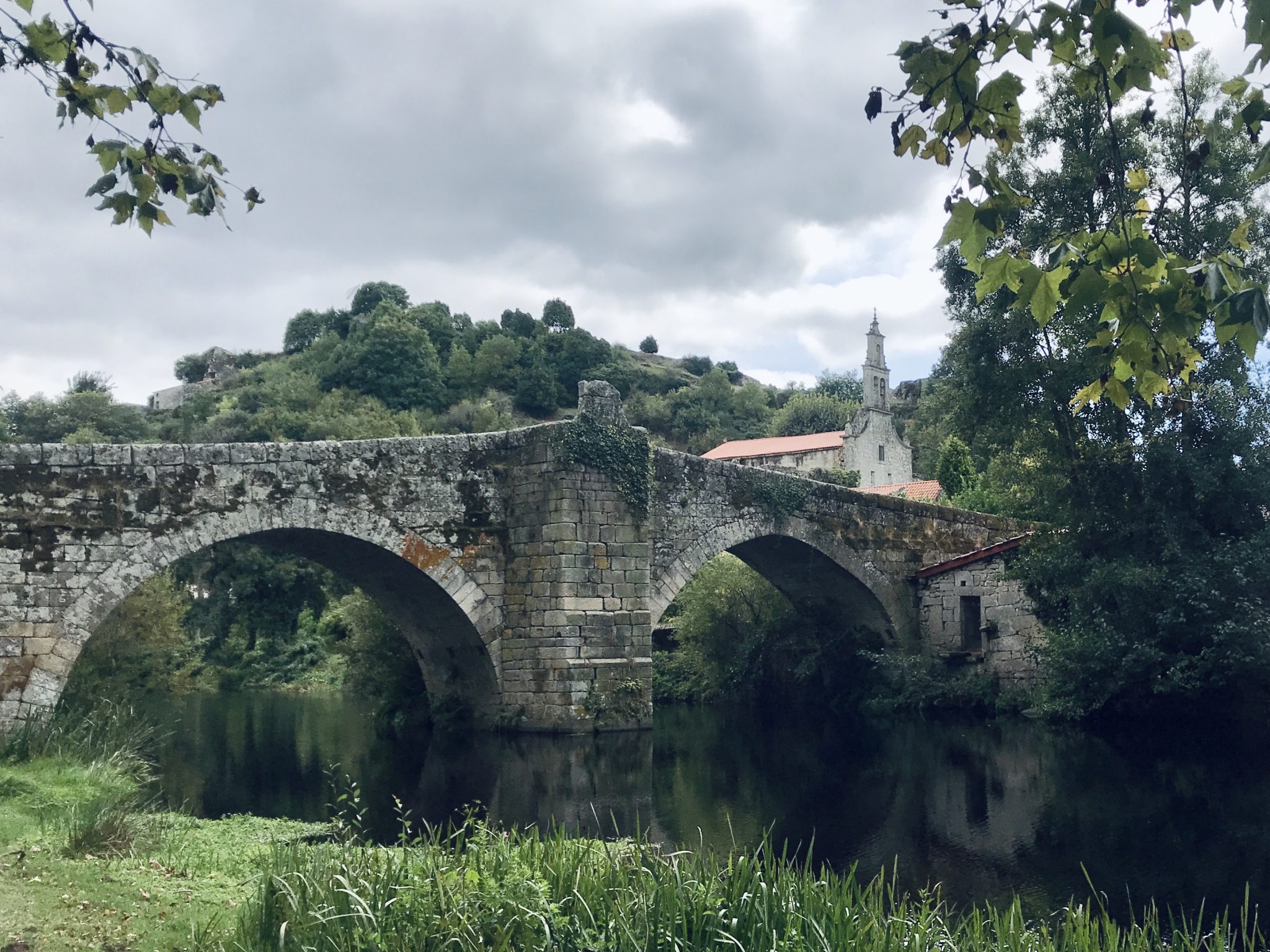
Like Ribadavia, Allariz has a casco antiguo that is incredibly well-preserved. The banks of the Arnoia have been turned into playgrounds, rest areas, and walking paths to enjoy the scenery of the river. Originally the town was built near a castro, those pre-Roman Celtic settlements. It played a major role in defending southern Galicia from being absorbed into Portugal and also held a sizable Jewish community (who were prohibited from living outside of the judería in the 13th century).
But unlike Ribadavia, Allariz seemed more alive. Granted, it’s difficult to take my impressions literally. Since we have our own vehicle, we occasionally arrive to a town during siesta time, when shops are momentarily closed and people are back home eating lunch or engaging in sobremesa with family or guests. Regardless, to me, Allariz seems to have an abundance of cultural events, civic institutions, herbolarios, and other interesting stores and places.
Allariz has been governed by O Bloque Nacionalista Galego, the Galician Nationalist Bloc, for thirty years. And it shows. Even amongst apoliticals around Pontevedra, when we mentioned Allariz, they said how well-known Allariz is for O Bloque’s commitment to social and economic wellbeing and to city preservation.
And like Ribadavia, we found exactly one rental. A couple kilometers outside of town and without much of a garden, we both feel more confident that once we have moved there, more things will become available, maybe even a few casas a reformar to buy, and to start the homeowning project. But all in good time.
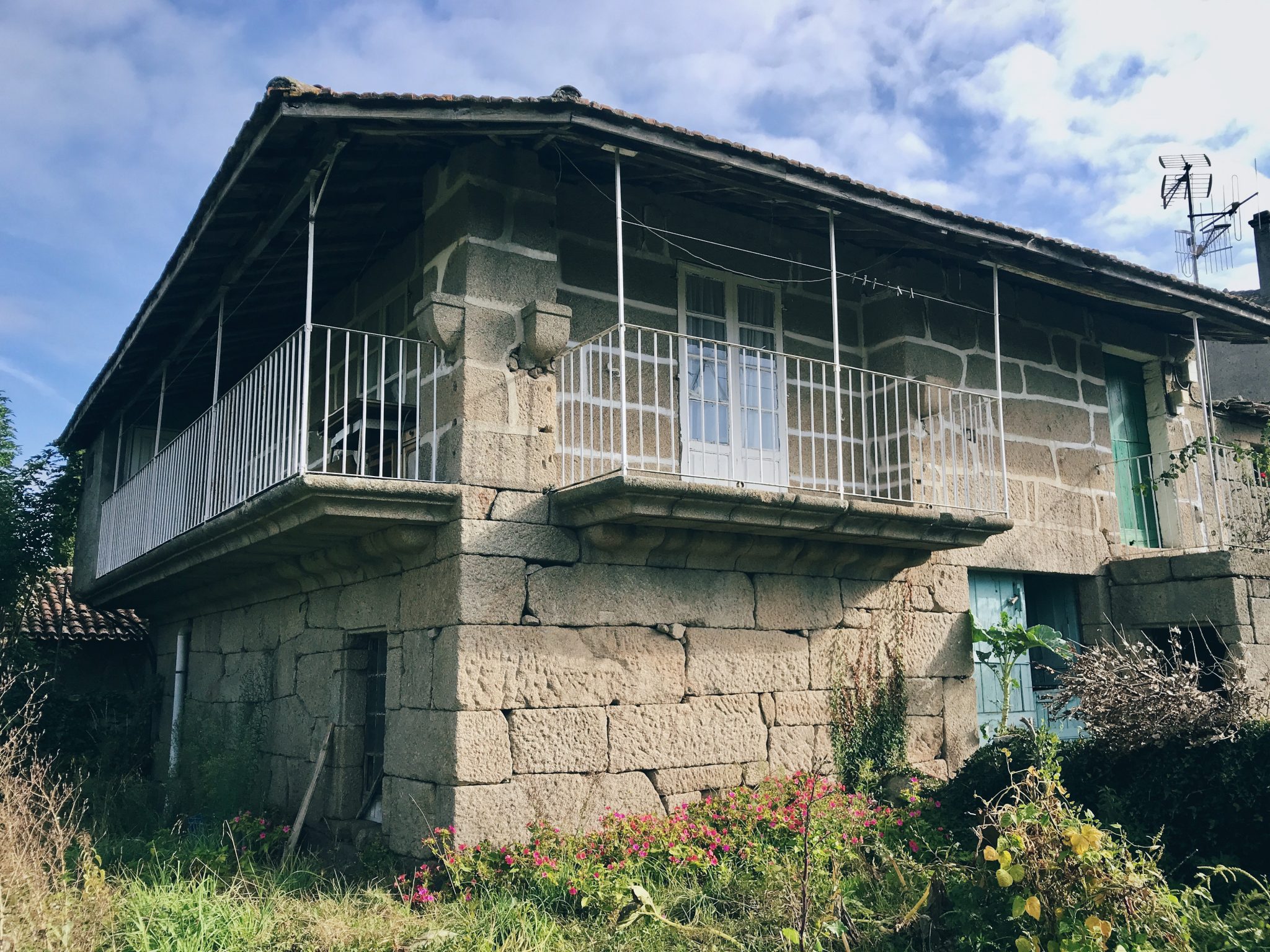
For now, I’m motivated by our decision to check out Ourense, and our options, even though they are somewhat limited. I haven’t even had time to write about our experience in Sende. Another time, then.
But here’s a photo of the climate strike in Pontevedra.
